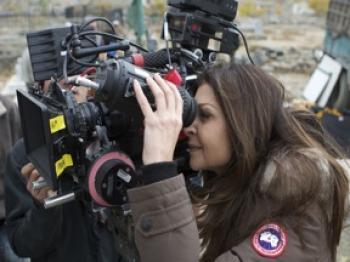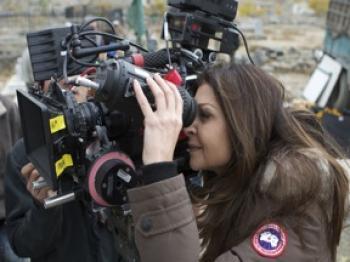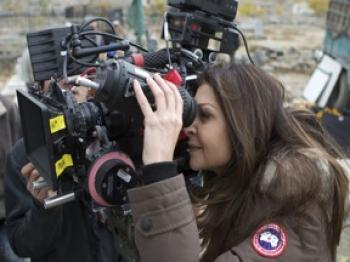Afghanistan’s Oscar Submission a Window Into Another World
“The Black Tulip,” a story of a middle-class Afghan family struggling to have a normal life in Taliban-terrorized Afghanistan.

ON LOCATION: Sonia Nassery Cole, on location in Afghanistan, directing the shooting of 'The Black Tulip.'Courtesy of Breadwinner Productions
|Updated:





